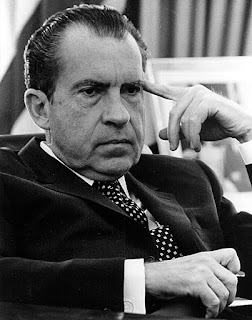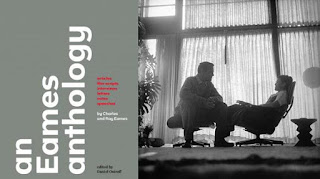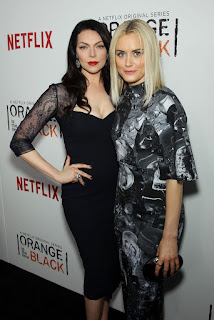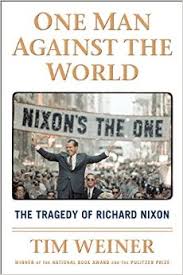Episodes
Friday Jun 26, 2015
Being Nixon: A Man Divided
Friday Jun 26, 2015
Friday Jun 26, 2015
 Most of us know the legendary story of the group of blind men who touch an elephant to learn what it is like. Each one feels a different part, but only one part, such as the side or the tusk or the tail.. They then compare notes and learn that they are in complete disagreement about what they experienced
Most of us know the legendary story of the group of blind men who touch an elephant to learn what it is like. Each one feels a different part, but only one part, such as the side or the tusk or the tail.. They then compare notes and learn that they are in complete disagreement about what they experiencedThis is the story of Richard Nixon.
So much has been written about Nixon. Much of it has come in waves. There was the period after his resignation, of the bad Nixon. Then after his death, the better Nixon. Now writers, journalists and historians are trying to tie all the threads together.
Perhaps Bill Clinton put it best in his eulogy for Nixon, when he said that “the day of judging President Nixon on anything less than his entire life and career must come to a close.”
Two very distinguished journalists, Evan Thomasand Tim Weiner, have, almost simultaneously, penned new books about Nixon.
Evan Thomas has written and Tim Weiner One Man Against the World: The Tragedy of Richard Nixon Being Nixon: A Man Divided
Being Nixon: A Man Divided
I recently had the opportunity to speak with both of them.
My conversation with Evan Thomas
Friday Jun 26, 2015
Nixon's the One
Friday Jun 26, 2015
Friday Jun 26, 2015
 Most of us know the legendary story of the group of blind men who touch an elephant to learn what it is like. Each one feels a different part, but only one part, such as the side or the tusk or the tail.. They then compare notes and learn that they are in complete disagreement about what they experienced
Most of us know the legendary story of the group of blind men who touch an elephant to learn what it is like. Each one feels a different part, but only one part, such as the side or the tusk or the tail.. They then compare notes and learn that they are in complete disagreement about what they experiencedThis is the story of Richard Nixon.
So much has been written about Nixon. Much of it has come in waves. There was the period after his resignation, of the bad Nixon. Then after his death, the better Nixon. Now writers, journalists and historians are trying to tie all the threads together.
Perhaps Bill Clinton put it best in his eulogy for Nixon, when he said that “the day of judging President Nixon on anything less than his entire life and career must come to a close.”
Two very distinguished journalists, Evan Thomas and Tim Weiner, have, almost simultaneously, penned new books about Nixon.
Evan Thomas has written and Tim Weiner One Man Against the World: The Tragedy of Richard Nixon Being Nixon: A Man Divided
Being Nixon: A Man Divided
I recently had the opportunity to speak with both of them.
My conversation with Tim Weiner
Monday Jun 22, 2015
Charles and Ray Eames and the technology of timelessness
Monday Jun 22, 2015
Monday Jun 22, 2015
 Long before Steve Jobs and Jony Ives bridged the divide between design and technology, before Target began selling Michael Graves tea kettles, Charles and Ray Eames made the connection between design, public perception and function. They created designs for furniture, architecture, toys and film and in so doing set the stage for much of the way we view our world today.
Long before Steve Jobs and Jony Ives bridged the divide between design and technology, before Target began selling Michael Graves tea kettles, Charles and Ray Eames made the connection between design, public perception and function. They created designs for furniture, architecture, toys and film and in so doing set the stage for much of the way we view our world today. They were visionaries, who were deeply grounded in the history, who understood that modern was also rooted in the classic.
Daniel Ostroff is a world authority on Charles and Ray Eames. His latest and perhaps seminal work is just out entitled An Eames Anthology: Articles, Film Scripts, Interviews, Letters, Notes, and Speeches .
.
My conversation with Dan Ostroff:
Thursday Jun 18, 2015
Before Jobs, Musk, Hewlett & Packard, or Ford...there were The Wright Brothers
Thursday Jun 18, 2015
Thursday Jun 18, 2015
 We live today in what many consider the age of technology. Everyday there are new apps, new ways in which incumbency is disrupted. But very few of the creators or inventors of today, understand the long view, or the way they are changing the world.
We live today in what many consider the age of technology. Everyday there are new apps, new ways in which incumbency is disrupted. But very few of the creators or inventors of today, understand the long view, or the way they are changing the world.Steve Jobs understood. Elon Musk understands. Maybe even Mark Zuckerberg does. Part of that understanding come from education. From seeing the world beyond themselves and their work, and seeing their place in world.
During another fertile period of innovation in America, as we moved from the 19th to the 20th Century, the same was true. Sitting high atop the pantheon of those that would seek to change the world then, were Wilbur and Orville Wright. With the support of their family, their bicycle shop was perhaps the ultimate tech startup of the time.
Wilbur and Orville Wright and their family are subject of a new biography The Wright Brothers , by multiple award winning historian David McCullough.
, by multiple award winning historian David McCullough.
My conversation with David McCullough:
Tuesday Jun 16, 2015
A Russian Spy, A Double Agent, The FBI and Hooters Parking Lot
Tuesday Jun 16, 2015
Tuesday Jun 16, 2015
It certainly did for Naveed Jamali. He dreamt of being in Naval Intelligence and it inspired him to become a real life double agent, albeit ending in the parking lot of Hooters. His is both a very American story but also an international story
Naveed tells his story along with Ellis Henican in their book How to Catch a Russian Spy: The True Story of an American Civilian Turned Double Agent .
.
My conversation with Navid Jamali and Ellis Henican:
Tuesday Jun 16, 2015
Never bet against Elon Musk's vision of the futrue
Tuesday Jun 16, 2015
Tuesday Jun 16, 2015
 There is always someone that leads us into the future. Someone whose vision and entrepreneurship combine to make the next big idea, the next big thing.
There is always someone that leads us into the future. Someone whose vision and entrepreneurship combine to make the next big idea, the next big thing.This has been true from Franklin, to Edison, from From Henry Ford to Thomas Watson, from Bill Gates to Steve Jobs and today Elon Musk may very well be the inheritor of that mantel.
Electric cars, commercial space travel, high speed transportation and even new forms of education, are all part of the vision that Musk sees; and and his vision is on its way to become our reality.
Bloomberg's Ashlee Vance has written a new biograph,y Elon Musk: Tesla, SpaceX, and the Quest for a Fantastic Future .
.
My conversation with Ashlee Vance:
Friday Jun 12, 2015
Would the real Alex Vause please stand up
Friday Jun 12, 2015
Friday Jun 12, 2015
 Many of you, I’m sure, think you’d love the idea of seeing your life portrayed in movies or television. But imagine if you knew nothing about it. If one day, you saw an ad for a TV show, and you, or at least your life, was the central character. Would you be scared, shocked, angry, a little excited. Cleary Wolters experienced all of thee things.
Many of you, I’m sure, think you’d love the idea of seeing your life portrayed in movies or television. But imagine if you knew nothing about it. If one day, you saw an ad for a TV show, and you, or at least your life, was the central character. Would you be scared, shocked, angry, a little excited. Cleary Wolters experienced all of thee things.As she saw her life in prison portrayed as Alex Vaus in ORANGE IS THE NEW BLACK.
Originally portrayed as Nora Jansen in Piper Kerman’s book, her life would transform again as a result of her story becoming part of an entertainment and cultural juggernaut.
Now Cleary Wolters takes her star turn as a writer and tells her story in her memoir Out of Orange: A Memoir .
.
My conversation with Cleary Wolters:
Wednesday Jun 10, 2015
How the law is shaping families and how new kinds of families are shaping the law
Wednesday Jun 10, 2015
Wednesday Jun 10, 2015
 In the world of families, all eyes are on same sex marriage. In the Courts, in Statehouses, and in the political arena. But on the ground, in the households and families where people live, this is just one manifestation of the change in family structures and family relationships.
In the world of families, all eyes are on same sex marriage. In the Courts, in Statehouses, and in the political arena. But on the ground, in the households and families where people live, this is just one manifestation of the change in family structures and family relationships.As such, the world of law and particularly family law, has changed. The way in which these new, creative and ever changing familial bonds are structured, and the complex feedback loop between the legal and loving nature of these relationships, creates whole new ways that we seek legal stability in the face of social and cultural change.
A the apex of this effort are people like my guest, Law Professor Martha Ertman, whose book Love's Promises: How Formal and Informal Contracts Shape All Kinds of Families looks at the way the law is trying to stay one step ahead of the social change.
My conversation with Martha Ertman:
Thursday Jun 04, 2015
Buckley and Mailer: The Difficult Friendship
Thursday Jun 04, 2015
Thursday Jun 04, 2015
 Today we have talking heads and pundits. But back in the second half of the 20th Century we had writers and public intellectuals, whose ideas, attitudes and personalities became a part of our public discourse.
Today we have talking heads and pundits. But back in the second half of the 20th Century we had writers and public intellectuals, whose ideas, attitudes and personalities became a part of our public discourse.Two of those that were the touchstones of the times were William F.Buckley and Norman Mailer. Both wrote about history, about sex, about politics and sometimes all at once. They were the guests you wanted to have at any dinner party.
They were also, each in his own way, bad boys of American letter. Buckley with his rapier wit and insults, pushed away as many people as admired him. Mailer with his pugilistic persona, further showed that with complex figures, the public surfaces were only part of the story.
Kevin Schultz gives us a kind of conjoined biography of the two in Buckley and Mailer: The Difficult Friendship That Shaped the Sixties .
.
My conversation with Kevin Schultz:
Wednesday Jun 03, 2015
Who cares what Jefferson would do?
Wednesday Jun 03, 2015
Wednesday Jun 03, 2015
 If we have problems in America, the solution is usually simple, check with the Founding Fathers. Can’t figure out modern health care, check with the Founders. Can’t deal with modern weaponry on America's streets, check in with the nation's Founders. Need to improve education for our kids..maybe a trip to Mt. Rushmore will solve it? Need to fix our airports, increase cancer and genetic research, or fund manned space travel..no problem. Just check in with Jefferson and Hamilton.
If we have problems in America, the solution is usually simple, check with the Founding Fathers. Can’t figure out modern health care, check with the Founders. Can’t deal with modern weaponry on America's streets, check in with the nation's Founders. Need to improve education for our kids..maybe a trip to Mt. Rushmore will solve it? Need to fix our airports, increase cancer and genetic research, or fund manned space travel..no problem. Just check in with Jefferson and Hamilton. Obviously a laughable idea.... but in fact this is exactly what we seem to do!! First of all our Founders, wise as they were, did not speak with a single voice, and they lived in a world that is barely recognizable from our own. So why are they relevant to every debate in America? Mostly because it’s a way for politicians to gain political traction, without having to marshall real debate or real solutions.
This is the confusion that David Sehat explains in The Jefferson Rule: How the Founding Fathers Became Infallible and Our Politics Inflexible .
.
My conversation with David Sehat:
Monday Jun 01, 2015
The fall of CrackBerry
Monday Jun 01, 2015
Monday Jun 01, 2015
 Many years ago, Harvard Business School perfected something called the “case study method.” A new educational innovation that presented the challenges confronting companies, nonprofits, and government organizations—complete with the constraints and incomplete information found in real business issues.
Many years ago, Harvard Business School perfected something called the “case study method.” A new educational innovation that presented the challenges confronting companies, nonprofits, and government organizations—complete with the constraints and incomplete information found in real business issues.Students learned that through the process of exchanging perspectives, countering and defending points, and building on each other's ideas, they became adept at analyzing issues, exercising judgment, and making difficult decisions.
Business journalist Sean Silcoff, in his new book, Losing the Signal: The Untold Story Behind the Extraordinary Rise and Spectacular Fall of BlackBerry , conducts his own case study.
, conducts his own case study.
He reminds us that in real business situations, unlike business school, there are no simple solutions; personalities matter and, and he shows how easy it is to go from leader to irrelevance in an economy that values creative destruction far more than the status quo.
My conversation with Sean Silcoff:
Version: 20240320



